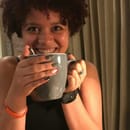Lights, camera, action!
Ah, the Academy Awards, that time of the year that us cinephiles love to hate (or hate to love, whatever floats your boat). With so much to discuss this year, such as Black Panther being the first comic book movie to be nominated for Best Picture, or Yalitza Aparicio being the first Indigenous woman to be nominated for Best Actress, we tend to overlook an important detail:
Where are the female director nominees, Academy?
This year’s selection of directorial nominees is impressive, to say the least, with names such as Alfonso Cuarón for his film Roma, Yorgos Lanthimos for The Favourite, Spike Lee for The BlacKkKlansman, Adam McKay for Vice and Pawel Pawlikowski for Cold War. By no means, I am denying the talent and worthiness of these directors by saying, Academy, where are the women?
This is not the first time this has happened, or even in the first time in recent years. In fact, in the history of the Academy Awards, only five female directors have ever been nominated, the most recent nominee being Greta Gerwig for Lady Bird, and only one has ever won the award, Kathryn Bigelow a decade ago in 2009 for her American war thriller The Hurt Locker.
Now, we all have heard the expression, “it’s not about gender, but about talent.”
Let’s see:
- Marielle Heller, Can You Ever Forgive Me? (2018)
The film that granted Melissa McCarthy a new beginning in her career after the mishaps with Ghostbusters, as well as a Best Actress nomination in this year’s edition of the Academy Awards, with a 98% Rotten Tomatoes score and an 84% Audience score, did not receive a single mention for the woman behind the camera that brought the film to life.
- Chloé Zhao, The Rider (2018)
Named 2018 Best Film by the National Society of Film Critics, with a Rotten Tomatoes score of 97% and an Audience score of 82%, this Beijing-born filmmaker managed to create fact-based wonder, using locals from the South Dakota reservation instead of actors, the film portrays itself almost as a documentary. This is Zhao’s second feature-length film, following the success of her debut Songs My Brother Taught Me, which also used locals instead of seasoned actors.
- Patty Jenkins, Wonder Woman (2017)
According to boxofficemojo.com, Wonder Woman has made around 822 million dollars in box office revenues (adjusted for inflation), with a production budget of 149 million. The Rotten Tomatoes score currently standing at 93% and the Audience score at 88%, critics and audience alike can say this film impacted the comic book cinematic universe, especially the DCU, which had been waiting for a win like this, both in box office and in audience reception, since Christopher Nolan’s The Dark Knight(2008).
- Ava DuVernay, Selma (2014)
The 2014 biopic about Martin Luther King Jr. that moved the souls of everyone that watched it, with Best Original Song of the Year Glory by John Legend and Common. A Rotten Tomatoes score of 99% and an Audience score of 86%, you must understand the surprise when, once again, another wonderful female director got snubbed from her opportunity to shine in the industry, despite the film being nominated for Best Picture
- Valerie Faris (and Jonathan Dayton), Little Miss Sunshine (2006)
With a Rotten Tomatoes score of 91% and an Audience score to match, this film was (once again) nominated for Best Picture, however, no mention of the directorial team who made the film the cinematic masterpiece that it still is. The Director-Picture matchup for nominations was 4-5 this year, and while Alan Arkin, who was guided by Faris, won his Best Actor in a Supporting Role award, no recognition came to the co-directors.
These are just a few examples of the major snubs that have been happening at the Academy Awards since its first edition.
It is, of course, important that we acknowledge the small number of female directors in Hollywood. According to a new ‘Celluloid Ceiling’ report from the San Diego State University, the percentage of female directors went from 11 percent in 2017 to 8 percent in 2018, which is also 1 percent lower than the 9 percent in 1998. The percentage of female directors in the top 100 and top 500 films has also dropped.
What these statistics do nothing to show the talent of these women, they do reveal that Hollywood needs to be more active in its creation of opportunities for women behind the camera, and it needs to start appreciating the unique perspective women can bring to Feature Length films, indies and blockbuster alike.
If you haven’t watched any of the previously mentioned films, treat yourself with the biggest bucket of popcorn and some friends, and enjoy great movies directed by wonderful people.
. all gifs and images are taken from their respective films, and not the property of Her Campus UBC


